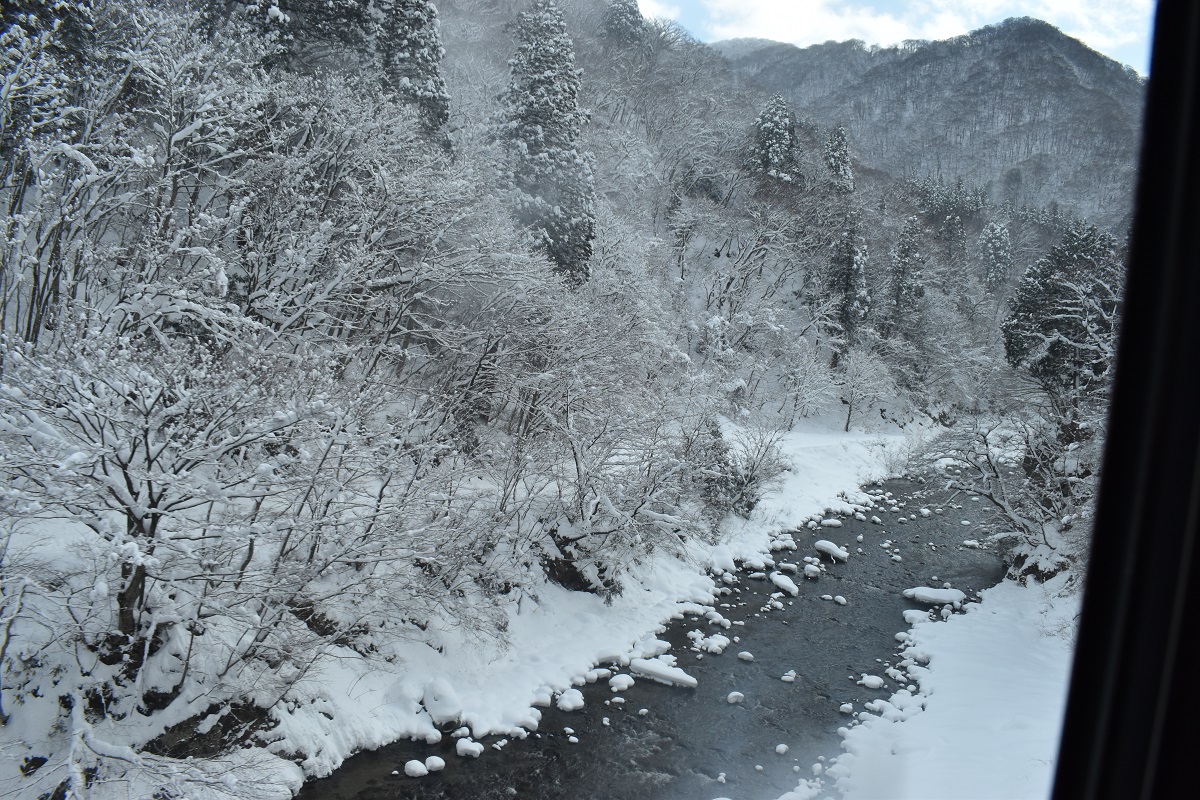When I got off the approach from Shiogama Shrine, I saw a large warehouse of sake brewery. Since it was founded nearly 300 years ago, it is a company with an even longer history than Kamei, which I visited earlier.
Everywhere Shrines and sake breweries have existed as a pair for a long time, but due to advances in brewing technology, the sake brewery entered a period of great competition, which is a great story for sake lovers. The taste of Daiginjo, which produces a refreshing taste by polishing sake rice to the extreme to remove miscellaneous tastes, becomes similar among any sake brewery without fear of misunderstanding. Therefore, I think that Junmaishu, which does not polish so much rice, represents the taste of the brewery.
Sake production is a complicated process in which a two-step process of saccharification of rice starch with koji and alcoholic fermentation of sugar with yeast is carried out in one barrel. Sufficient alcoholic fermentation of sugar results in dry sake, its current fashion, but it does not retain the umami(rich taste) of rice. On the other hand, sake which often wins the gold medal in the world is not suitable for in-meal liquor because its umami is so distinctive. This balance is difficult, and the true sense of Toji(Master of sake in each brewery) is questioned.
Although wine and sake are common in that they are not distilled, the wine is only fermented of its sugar, so the performance of the grapes harvested is the most important. So vintage is everything. On the other hand, sake is all about delicate manufacturing methods.
If you go back to Uragasumi Sake Brewery, you can buy a small glass, and with this you can have 3 kinds of tasting, so please find the one you like and buy it. However, buying a full bottle here will affect later actions.

There is another well-established store here that I want to stop by. It is a Japanese confectionery shop “Tanrokuen” that sells Shihogama. When you put it in your mouth, it melts and you can feel the scent of salt and perilla. As before, shrines and Japanese confectionery shops are paired everywhere. However, it seems that it has made history by changing the industry since the beginning. Speaking of Japanese sweets, Japanese tea is always associated with it, and it is clear that tea utensils are now sold mainly there.
Detour for lunch (Le Nid d’hirondelle in Higashi-Matsushima Town)
Higashi(East)-Matsushima Town has the same place name as “Matsushima”, but because it is off Matsushima Bay with a lot of small islands as a breakwater, it was directly affected by the tsunami of the Great East Japan Earthquake. Although the coastal land became salty and therefore not suitable for cultivation, private company KDDI Evolva, contact center services for telecommunication business, is taking on the challenge of smart agriculture such as high quality tomato production by hydroponics, land restoration and employment of people with disabilities. They are really working on making the situation plus rather than returning it to zero from minus in Nobi district !
A new town is being rebuilt on the opposite bank of the Nobi district, and there is a restaurant worth a detour in it. That is “Le Nid d’hirondelle“.
Since the air base is located in Higashi- Matsushima Town, you could see Blue Impulse training flights sometimes near here.








